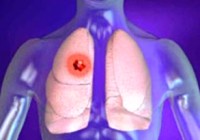Cancer - this word always causes confusion and fear. The fellow man usually closes, although now he, more than ever, needs help. In this article - advice how to understand yourself and survive the difficult time of your illness.
Content
Esophageal cancer is a relatively rare disease in Europe and North America. It is more common in men and usually occurs in the elderly, although the age range is expanded now, and some types of cancer become more frequent. The reason for it is unknown, but it may be associated with the wrong power and a long gastroofic acid reflux (reverse stream of the contents of the stomach towards the oral cavity). Esophageal cancer is more common in the Far East and in Central Asia, which suggests that the nature of nutrition or the environment may affect the development of the disease. Other states adversely affecting the esophagus, such as the lack of normal esophagus reductions (Ahalasia), also in very rare cases can lead to cancer.
 Most people experience a shock when they reported that they have cancer. There are many different emotions that can cause confusion of feelings and frequent mood changes. You may not experience all the feelings discussed below, or experience them in another sequence. This does not mean, however, that you do not struggle with your illness. These emotions are part of the process through which many people pass, trying to reconcile with their illness. Partners, family members and friends are often experiencing the same feelings and often need the same support and guidance when trying to cope with their feelings, like you.
Most people experience a shock when they reported that they have cancer. There are many different emotions that can cause confusion of feelings and frequent mood changes. You may not experience all the feelings discussed below, or experience them in another sequence. This does not mean, however, that you do not struggle with your illness. These emotions are part of the process through which many people pass, trying to reconcile with their illness. Partners, family members and friends are often experiencing the same feelings and often need the same support and guidance when trying to cope with their feelings, like you.
Shock and distrust - «I can not believe this», «I can't be sure». This is often the first reaction when the esophagus cancer is diagnosed. You can feel a stupor, inability to believe what happened, or express any emotions. You may find that you are able to learn only a small amount of information and therefore you have to ask the same questions again and again, or you need to tell you the same portions of information. This need for repetition is a conventional reaction to shock. Some people may find that their feeling of distrust makes them difficult talk about illness with family and friends. Other people feel an insurmountable need to discuss it with others. This may be a way that helps them to accept these news.
Fear and uncertainty - «I'm dying?», «I will experience pain?» Cancer is a frightening word surrounded by fears and myths. One of the greatest fears expressed by people, sick cancer, is: «I'm dying?» In fact, many types of cancer are currently heal if they are found at a fairly early stage. If cancer can not be heal completely, modern treatments often mean that the disease can be managed for many years, and many patients can live almost normal life.
Many people feel that they need their affairs in order if they are diagnosed with cancer. Such an act can eliminate some of this uncertainty and calm patients by the fact that no matter what happens, their family will take care of. One way to do this is to draw up testament.
«Will I feel pain?» and «Will there be a hurt beyond?» - Other ordinary fears. In fact, many people, patients with esophagus cancer, do not experience pain at all. For those who experience pain, there are many modern drugs and other techniques that very successfully remove pain or keep it under control. Another way to facilitate pain or prevent the appearance of the feeling of pain is radiation therapy and nerves blockade.
Many people are afraid of treatment: it will work or not, and how to cope with possible side effects. It is best to discuss your individual treatment with your doctor. Make a list of questions you would like to ask. If you do not understand something about your treatment - ask. You may want to take a close friend or relative with me to a doctor. If you feel upset, they will be able to remember those details of the consultation that you can forget. You may want them to ask them questions about which you will heal, ask their doctor or not.
Some people are afraid of the hospital. It can be a frightening place, especially if you have never been to the hospital before, but discuss your fears with your doctor; He or she can calm you.
You may find that doctors cannot answer your questions in detail, or their answers may sound indefinitely. It is often impossible to say definitely that the tumor is completely removed. Doctors are approximately representing, based on the experience of recent years, how many people have benefited from a certain type of treatment, but it is impossible to predict the future of a certain person. Many people find that it is difficult to live with this uncertainty - ignorance, you cured or not, can disturb. The uncertainty of the future can cause strong stress, but fears are often worse than reality. Receiving knowledge about your illness can be soothing. Talking about what you learned with family and friends can help you remove the tension caused by unnecessary fears.
Negation - «In fact, nothing bad happened to me», «I have no cancer». Many people try to cope with their illness, not wanting to know anything about her or not wanting to talk about her. If you feel exactly, then just very firmly tell people around you, that you prefer not to talk about your illness at least at this time. However, sometimes there is another option. You may find that your family and friends deny the existence of your illness. It seems that they ignore the fact that you have cancer, perhaps the presenter of your alarms and symptoms, or consciously changing the topic of conversation. If it grieves or offends you, because you want them to support you, delivering your feelings, try to talk to them. Maybe you should start so that you know what happened, and what will help you if you can talk about your illness with them.
Anger - «Why I am among all people?», «And why now?» Anger can mask other feelings, such as fear or despondency, and you can direct your anger on those who are close to you all, as well as on doctors and nurses who care for you. If you are religious, you can feel angry towards God. It is clear that you can be deeply upset by many aspects of your illness, and you should not feel guilty because of your angry thoughts or irritated mood. However, relatives and friends can not always understand that your anger is actually directed to your disease, and not on them. If you are capable of it, it is useful to tell them this while you do not feel very angry. If you find that you are hard to talk to your family, you can help discuss the situation with a professional psychotherapist or psychologist.
Liability and sense of guilt - «If I were not…, it would never happen». Sometimes people accuse themselves or other people in their illness trying to find the reasons why it happened to them. This can happen because we often feel better if we know why something happened, however, since even doctors rarely know exactly what caused a cancer of the esophagus in a certain person, you have no reason to blame yourself.
Resentment - «With you everything is in order, you do not have to endure it». It is clear that you can feel offended and unhappy because you have cancer, and other people are fine. A similar feeling of resentment can occasionally arise from time to time in the course of your illness and its treatment for various reasons. Relatives can also be offended because of those changes that your illness has introduced into their lives.
 Do not hide your feelings. It is usually useful to show these feelings around them so that they can be expressed and discuss. Attempting to hide offense can cause any man feelings of anger and guilt.
Do not hide your feelings. It is usually useful to show these feelings around them so that they can be expressed and discuss. Attempting to hide offense can cause any man feelings of anger and guilt.
Care and insulation - «Please leave me alone». During your illness, there may be periods when you want to stay alone to sort out your thoughts and emotions. It may be difficult for your family and friends who want to divide this difficult time. Nevertheless, it will be easier for them if you calm them the fact that, although you do not have the desire to discuss your disease at the moment, you talk to them about her when you are ready for this. Sometimes the unwillingness to talk may be due to depression. It may be useful to discuss it with your doctor who can prescribe a course of antidepressant drugs or direct you to a psychotherapist who specializes in the emotional problems of cancer patients. After all, anyone needs support in difficult times.
Learn to own themselves. After any kind of treatment of the esophagus cancer, it may be necessary for a long time to cope with their emotions. You must cope not only with the knowledge that you have cancer, but also with the physical effects of treatment. Although the treatment of esophageal cancer can cause unpleasant side effects, many people manage to lead almost normal life during the course of the disease. It is clear that you will need time on the treatment itself and for some time after it for recovery. Do as much as you can and try to relax a lot. Not a sign of his own insolvency request for help or feeling that you cannot cope with the problems yourself. As soon as other people understand what you feel, they can provide great support.
Partners, relatives and friends can help, listen carefully to what he wants and can say a sick cancer. Do not interfere with the conversation about the disease. It is often enough just to listen and give the patient to speak out when she or he is ready for it.
Adolescents can be especially difficult to cope with the situation because they feel that they are forced to return to the family just when they began to be free and acquired independence.
Open, honest approach is usually the best solution for all children. Listen to their fears and watch any changes in their behavior. This may be their way to express their feelings. Maybe it is better to start with the messages of small portions of information and gradually constructing the painting of the disease. Even very little children may feel that something is wrong, so do not keep them in ignorance about what is happening. Their fears as to what can happen may be much more terrible than reality.
 Many people feel helpless when they report themselves that they have cancer. They think that nothing can be done, except to surrender to doctors and in hospitals. This is wrong. There is a lot that you and your family can do at this time.
Many people feel helpless when they report themselves that they have cancer. They think that nothing can be done, except to surrender to doctors and in hospitals. This is wrong. There is a lot that you and your family can do at this time.
Understanding your illness. If you and your family will understand the essence of your illness and its treatment, you will be better prepared for how to cope with the situation. With this approach, you at least have some ideas as to what you encounter. In order for the information to be significant, it must proceed from the trustworthy source, which will prevent the emergence of unnecessary fears because of it. Individual medical information should come from your doctor who knows your history well. As indicated above, it may be useful before visiting the doctor to make a list of questions or take a friend or relative with me, who will remind you of things that you want to know, but you can forget.
Practical and positive tasks. At times you may not be able to make those things you used to consider granted. But as soon as you begin to feel better, you can deliver some simple goals and gradually work out self-confidence. Do your affairs slowly and gradually.
Many people talk about «Fight with his illness». It can help some people, and you can do it by starting to engage in your illness. Simple way to perform this is planning a healthy, well balanced diet. Another way to learn relaxation techniques that you can do at home using tape recorders. Some people believe that the presence of cancer has taught them to properly distribute their time and more constructively use their energy than it was before the disease.
You can find useful performance of certain regular exercise. The type of exercises you choose and the level of load depends on what you are accustomed and how well you feel. Put yourself with real goals and seek them slowly. If the idea to change the nature of your food or do physical exercises you do not like, do not think that you should do it; Do just what suits you. Some people can find pleasure to keep their normal lifestyle, as far as possible. Others prefer to take leave of PLI spend more time on their hobbies.
It is most important to remember that there are people who can help you and your family. It is often easier to talk to someone who is not directly related to your disease. You can find a useful conversation with a psychotherapist who is specially trained to listen and provide support.









